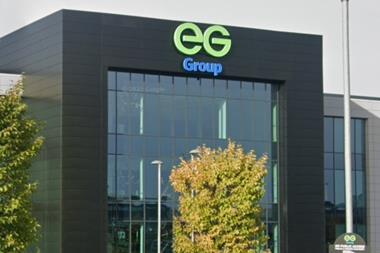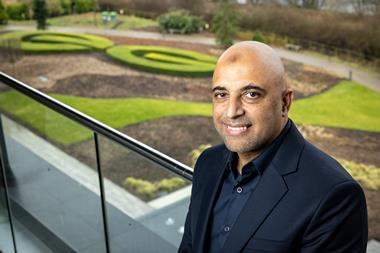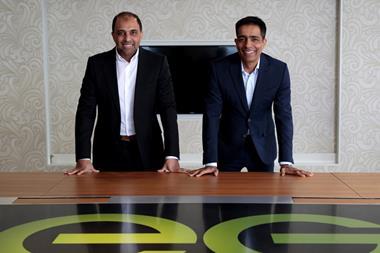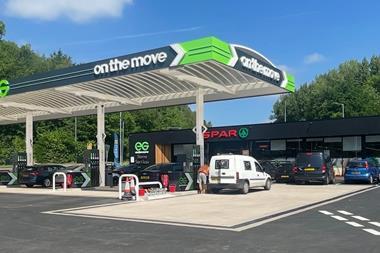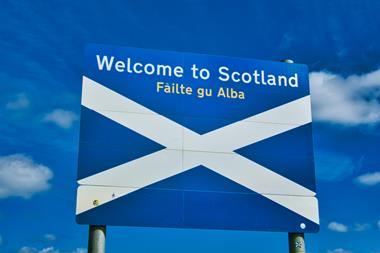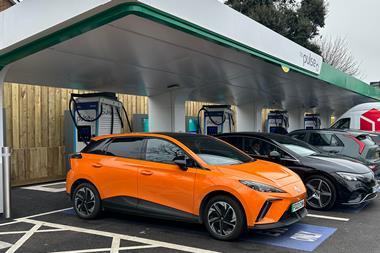EG Group and Asda are both set for new chapters in their development as EG Group explores the future of alternative fuels and Asda becomes the second biggest owner of forecourts in the UK. John Wood reports
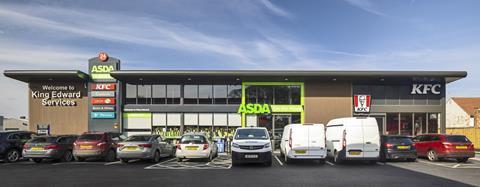
When EG Group’s owners acquired Asda, albeit keeping it as a separate company, it was clear it could have major implications for both companies and for the wider UK fuel sector. Both were leaders in the forecourt sector but in very different segments of the market.
EG Group was a global powerhouse in the service station sector, which had developed a major network across Great Britain, and led the way in introducing a wider convenience and foodservice offer to the sector. Asda’s forecourts were part of its overall supermarket package, and it was acknowledged as the price leader in the British fuel sector.
Shortly after the acquisition of the supermarket group there was a plan for EG Group to acquire Asda’s 320 petrol filling stations, car washes and ancillary land for £750m, but the deal was dropped in October 2021. Then Asda on the Move stores started appearing on EG sites and now the situation has almost turned completely round with the vast majority of EG Group’s British sites being taken over by Asda.
However, while the headlines suggested Asda was taking over EG Group’s UK & Ireland operations, the detail was more nuanced. The deal was an agreement to sell to Asda the majority of its EG Group’s UK and Ireland fuel, foodservice, grocery and merchandise business, but it also revealed EG Group would be retaining about 30 UK sites – including the first Euro Garages site in Bury – which are close to the group headquarters and frequently used to trial innovation. The Cooplands bakery business and other foodservice brands would also be retained, and the Waterside offices in Blackburn, will remain as the global headquarters and shared service centre for the group.
There were also other indications that EG would still be active in the fuel sector, but very much focused on the transition to zero-emission transport and the fuels that will be required in the future. Zuber Issa, co-founder and co-CEO of EG Group, commented: “This transaction with Asda represents an important strategic step for EG Group. Following this sale, EG Group will benefit from a significantly strengthened balance sheet, supporting the continued roll-out of its successful convenience retail, fuel and foodservice strategy and drive innovation to transform the consumer experience. This includes the ongoing investment and expansion of our EV charging business, evpoint, as well as hydrogen and other sustainable fuel retail infrastructure, which we continue to see as a significant future opportunity.”
The group gave a further insight into its strategy in its trading update for the first quarter of 2023, which was released earlier this month. It said: “Across all markets, the evolution to alternative fuels presents a major opportunity for the group, with EG’s large site network offering a unique base from which to build a leading rapid-charging network. The group has identified almost 4,000 high-quality potential sites for ultra-rapid charging that have high footfall, enough car parking spaces and complementary foodservice and/or grocery offerings. With the whole of the EV business – including in the UK – remaining in the group, we see a huge opportunity in the near-term to accelerate the roll-out of a leading EV charging proposition, under our proprietary brand, evpoint.”
More indications of the group’s thinking on alternative fuels were revealed in March when two hydrogen pumps were included in a planning application for a service station development in Aberdeenshire. A planning statement with the application stated that the hydrogen refuelling station would be supplied by Element 2, which is aiming to develop a network of hydrogen refuelling stations (HRS) across the UK.
It added: “Element 2 sees the application site as being a strategic location for the provision of a hydrogen refuelling station as it is located on the main road transport route from the central belt to the north-east of Scotland, passing through the major cities of Dundee and Aberdeen. This will be one of a few hydrogen refuelling stations in the UK that can serve both HGVs and cars. The refuelling area will comprise two refuelling bays located under a canopy, accommodating two vehicles, with space behind the bays for additional queueing vehicles.”
There would also be seven EV charging bays on the site and the planning statement stated that the number of EV bays would increase as demand rises. The petrol and diesel filling facilities would be five double-sided fuel pump stations accommodating 10 vehicles as well as two fuel pumps for HGVs and coaches accommodating three vehicles. The planning statement discussed the future transition away from fossil fuels expected in the future and stated: “Indicative plans submitted with this planning application, illustrate how the allocated petrol and diesel refuelling pumps (including HGVs, vans and coaches) could potentially be converted to electric recharging bays over the periods up to 2030 and 2045.”
And while EG Group is preparing for the future, Asda will become an even greater force in the current forecourt sector. In addition to 321 forecourts on its supermarket estate, and three standalone Asda Express sites, it recently added 119 Co-op forecourts and with about 350 from EG Group it will have around 790 sites. This will not only make it the supermarket with the greatest number of forecourts – Tesco is second with 512 (excluding the Tesco/Esso alliance sites) – but also the owner of the second largest estate of forecourts in the UK behind MFG.
In its statement announcing the deal, Asda said it would bring all the acquired EG sites under the Asda fascia and it remained committed to the lowest supermarket fuel prices and to ensuring more consumers get access to its fuel price. The main attraction of the deal, however, is it will supercharge Asda’s development into convenience and foodservice, where it has lagged behind its supermarket competitors. There have already been 166 EG sites converted to Asda on the Move and this has given the business confidence in the conversion strategy integral to the expected synergies of the deal.
Stuart Rose, chair of Asda and EG Group, said: “Asda’s acquisition of EG UK and Ireland will create a consumer champion like the UK has never seen. Throughout my career in retail one thing has always been true: that meeting the evolving needs of customers is the route to growth. This transaction is all about driving growth by bringing Asda’s heritage in value to even more communities and accelerating the growth of its convenience retail business.”
Mohsin Issa, co-owner of EG Group and Asda, said: “Asda is committed to saving customers precious time and money across their shopping baskets and on the forecourt. The combination of Asda and EG UK&I will be positive news for motorists, as we will be able to bring Asda’s highly competitive fuel offer to even more customers.”
Gary Lindsay, managing partner of Asda and EG Group’s co-owner TDR Capital, said: “The combination of Asda and EG UK&I creates a convenience and food retailing champion, with nearly £30bn in annual revenues. The two businesses are highly complementary, bringing together Asda’s traditional focus on mid-to-large sized supermarkets and EG UK&I’s on convenience retail, foodservice and fuel.”
The deal is expected to be completed in the final quarter of 2023, and despite its size it is thought unlikely there will be any issues raised by the Competition and Markets Authority (CMA). The CMA already considers the two businesses as one due to their shared ownership, and the pair also share the same chair in former M&S boss Stuart Rose. Also, back in 2021 the deal by Mohsin and Zuber Issa and TDR to acquire Asda was investigated by the CMA and EG Group was required to sell off 27 sites to allay concerns that competition could be affected in the forecourt sector in local markets.
So by the end of the year we can expect an even more powerful Asda to be expanding its reach in the forecourt sector, while EG Group develops its strategy for the fuel sector through the transition to zero-emission transport and beyond.






















